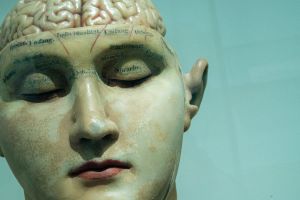 Dementia, a multifaceted condition encompassing various forms such as Alzheimer’s and vascular dementia, casts a pervasive influence on millions globally. Its impact extends far beyond cognitive decline, often causing distress, anxiety, and an altered perception of reality. There are currently 900,000 people living with dementia in the UK and this is projected to rise to 1.6 million by 2040.
Dementia, a multifaceted condition encompassing various forms such as Alzheimer’s and vascular dementia, casts a pervasive influence on millions globally. Its impact extends far beyond cognitive decline, often causing distress, anxiety, and an altered perception of reality. There are currently 900,000 people living with dementia in the UK and this is projected to rise to 1.6 million by 2040.
There are many different types of dementia, with different causes.
Alzheimer’s Disease: Alzheimer’s stands as the most prevalent form of dementia, accounting for the majority of cases. This progressive condition causes memory loss, cognitive decline, and behavioral changes. It gradually impairs everyday functioning and is characterised by the accumulation of amyloid plaques and tau protein tangles in the brain.
Vascular Dementia: Following closely, vascular dementia is the second most common type, often occurring due to reduced blood flow to the brain. This form of dementia can result from stroke or other conditions impacting blood circulation, leading to cognitive impairment, memory loss, and difficulties with reasoning and judgment.
Mixed Dementia: This form combines aspects of both Alzheimer’s disease and vascular dementia, manifesting as a blend of symptoms from both conditions. It’s not uncommon for individuals to exhibit signs of both Alzheimer’s pathology and vascular damage in the brain.
Dementia with Lewy Bodies (DLB): DLB is characterised by the presence of abnormal protein deposits called Lewy bodies in the brain. It shares similarities with both Alzheimer’s and Parkinson’s diseases, causing fluctuations in alertness, visual hallucinations, movement issues, and cognitive challenges.
Frontotemporal Dementia (FTD): This type of dementia encompasses several disorders, affecting the frontal and temporal lobes of the brain. FTD manifests in changes to behavior, personality, language, and emotions, often occurring at a younger age compared to other forms of dementia.
These varying types of dementia present unique challenges and symptoms, impacting individuals differently and requiring tailored approaches to care and treatment. Understanding the distinctions between these forms is crucial in providing appropriate support and management for those affected.
Life Altered by Dementia’s Turbulence
When someone experiences dementia, life becomes a tumultuous and scary place marked by uncertainty and disarray. The erosion of one’s identity and memory leaves a void, challenging both the individual affected and their close circle. Confusion is one of the most common symptoms of demntia, with people forgetting large sections of their lives, sometimes remembering fragments from their childhood while being unable to remember who their long-term partner is.
These memory challenges can also encompass personality changes, with people who were previously known for being patient and kind becoming argumentative, rude or spiteful. This can cause major difficulties for those tasked with caring for them. However, amidst this turmoil, hypnotherapy emerges as an unexpected haven, offering a glimmer of hope in the face of such challenging circumstances.
Hypnotherapy: A Calming Respite
The profound anxiety stemming from forgotten details or the inability to recollect significant memories finds solace in the gentle embrace of hypnotherapy. A number of studies have unveiled its potential in comforting individuals dealing with dementia, providing a sense of relaxation and alleviating anxiety. By bridging the conscious and unconscious realms of the mind, hypnosis aids in sharpening focus, enhancing concentration, and instilling self-affirmation. Consequently, this fosters increased social interaction and heightened motivation in daily life.
Though hypnotherapy doesn’t present a cure for dementia, its significance lies in easing the daily struggles, empowering individuals to engage more comfortably with life’s activities.
Extending Comfort to Caregivers
The tumult experienced by individuals facing dementia is mirrored in the hearts of their caregivers. Bearing witness to a loved one’s gradual departure into the labyrinth of memory loss is an emotional odyssey with no fixed route. Dementia blurs the boundaries between reality and perception, leaving caregivers grappling with the authenticity of their loved ones’ experiences.
Personal experiences with family members affected by dementia echo the emotional turmoil that caregivers commonly face. Their narratives often weave intricate stories, blending reality with fictional elements. Acceptance becomes a poignant journey, akin to navigating a loved one’s residence in a parallel dimension—occasionally intersecting with our own.
Within this emotional whirlwind, hypnotherapy offers solace not just to the affected individual but also extends a comforting hand to their dedicated caregivers. Dr. Simon Duff’s groundbreaking research underscores its efficacy in enhancing concentration, memory retention, and socialisation among dementia patients. Regular sessions not only decelerate the progression of dementia but also significantly improve their quality of life.
Charting the Path Forward
 Dr. Duff’s pioneering research sheds light on hypnotherapy’s potential to stabilise and enhance the lives of individuals navigating the challenges posed by dementia. Hypnotherapy sessions, providing relaxation and improved concentration, signal like a beacon of hope for people living with loved ones who are progressively losing their faculties.
Dr. Duff’s pioneering research sheds light on hypnotherapy’s potential to stabilise and enhance the lives of individuals navigating the challenges posed by dementia. Hypnotherapy sessions, providing relaxation and improved concentration, signal like a beacon of hope for people living with loved ones who are progressively losing their faculties.
Ongoing research aims to delve deeper, exploring hypnosis’s sustained impact on dementia as it progresses. Dr. Dan Nightingale, a leading dementia consultant, advocates for the integration of hypnotherapy into healthcare plans to improve the lives of dementia patients.
Embracing Hope Through Hypnotherapy
In a world clouded by uncertainty, hypnotherapy emerges as a comforting refuge for those impacted by dementia. It doesn’t erase the condition but acts as a guiding light, illuminating paths toward improved well-being and an enhanced quality of life. In this journey through dementia, hypnotherapy offers a sense of hope—a ray of light amidst the shadows, guiding individuals and their loved ones towards moments of clarity and calmness. In this fusion of science and compassion, hypnotherapy offers comfort, respite, understanding, and a glimmer of optimism in the face of adversity.
To find a hypnotherapy clinician near you who understands dementia, please use the National Council for Hypnotherapy’s Therapist Finder.
Photo by David Matos on Unsplash
Photo by Steven HWG on Unsplash


